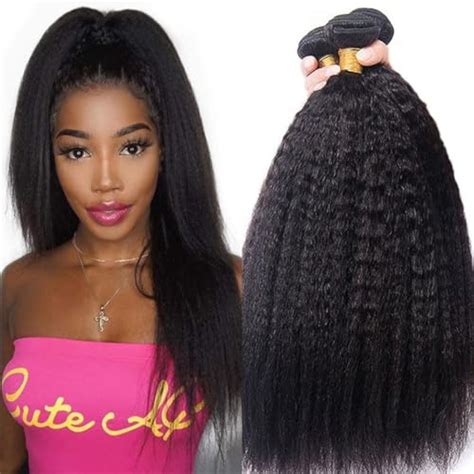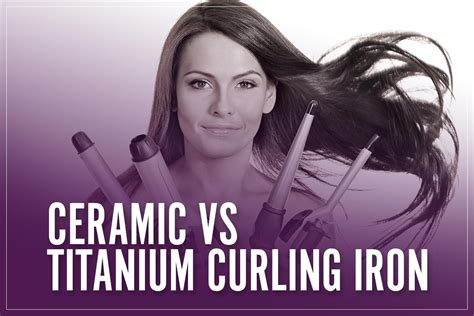The Ultimate Guide to Finding the Perfect Curling Iron for Your Hair
If you’re like most women, you probably love to curl your hair. But if you’ve ever used a curling iron, you know that it can also be a bit of a pain. The wrong curling iron can damage your hair, leave it frizzy, and even cause it to break.

So, what’s the best material for a curling iron?
The answer depends on your hair type and your personal preferences. But here’s a quick overview of the most common materials used in curling irons:
- Ceramic
- Titanium
- Tourmaline
- Ionic
Let’s begin by introducing ceramic. Ceramic is a popular material for curling irons because it heats up evenly and distributes heat well. This helps to prevent hot spots that can damage your hair. Ceramic is also a good choice for people with all hair types, from fine to thick.
Moving on to titanium, we see that it is another popular material for curling irons. Titanium heats up quickly and evenly, and it can reach higher temperatures than ceramic. This makes it a good choice for people with thick, coarse hair. However, titanium can also be more damaging to hair than ceramic, so it’s important to use it with caution.
Tourmaline is a semi-precious gemstone that is often used in curling irons. When heated, tourmaline releases negative ions, which can help to reduce frizz and make hair shinier. Tourmaline is a good choice for people with all hair types, but it is especially beneficial for people with fine, dry hair.
Finally, let’s talk about ionic. Ionic curling irons release negative ions, which can help to reduce frizz and static. Ionic curling irons are a good choice for people with all hair types, but they are especially beneficial for people with thick, coarse hair.
Now that you know about the different materials used in curling irons, you can make an informed decision about which one is right for you. Here’s a quick summary of the pros and cons of each material:
| Material | Pros | Cons |
|---|---|---|
| Ceramic | Heats up evenly, distributes heat well, good for all hair types | Can be more expensive than other materials |
| Titanium | Heats up quickly and evenly, can reach high temperatures, good for thick, coarse hair | Can be more damaging to hair than ceramic |
| Tourmaline | Releases negative ions, reduces frizz, makes hair shiny, good for all hair types | Can be more expensive than other materials |
| Ionic | Releases negative ions, reduces frizz and static, good for all hair types | Can be more expensive than other materials |
Ultimately, the best material for a curling iron is the one that is right for your individual hair type and needs. But no matter what material you choose, be sure to use it with care to avoid damaging your hair.
Common Mistakes to Avoid When Using a Curling Iron
Now that you know how to choose the right curling iron, here are a few common mistakes to avoid when using one:
- Not using a heat protectant spray: Heat protectant spray helps to protect your hair from damage caused by heat styling tools. Be sure to apply it to your hair before you start curling.
- Curling your hair when it’s wet: Curling wet hair can cause it to break. Always make sure your hair is completely dry before you start curling it.
- Leaving the curling iron in one place for too long: This can cause hot spots that can damage your hair. Keep the curling iron moving constantly while you’re curling your hair.
- Curling your hair too often: Curling your hair too often can damage it. Try to limit yourself to curling your hair once or twice a week.
By avoiding these common mistakes, you can help to keep your hair healthy and beautiful.
How to Choose the Right Curling Iron for Your Hair Type
Now that you know how to use a curling iron safely, here are a few tips on how to choose the right curling iron for your hair type:
- Fine hair: If you have fine hair, you’ll want to choose a curling iron with a smaller barrel. This will help to create tighter curls that will last longer.
- Medium hair: If you have medium hair, you can choose a curling iron with a medium-sized barrel. This will help to create loose, beachy waves.
- Thick hair: If you have thick hair, you’ll want to choose a curling iron with a larger barrel. This will help to create
